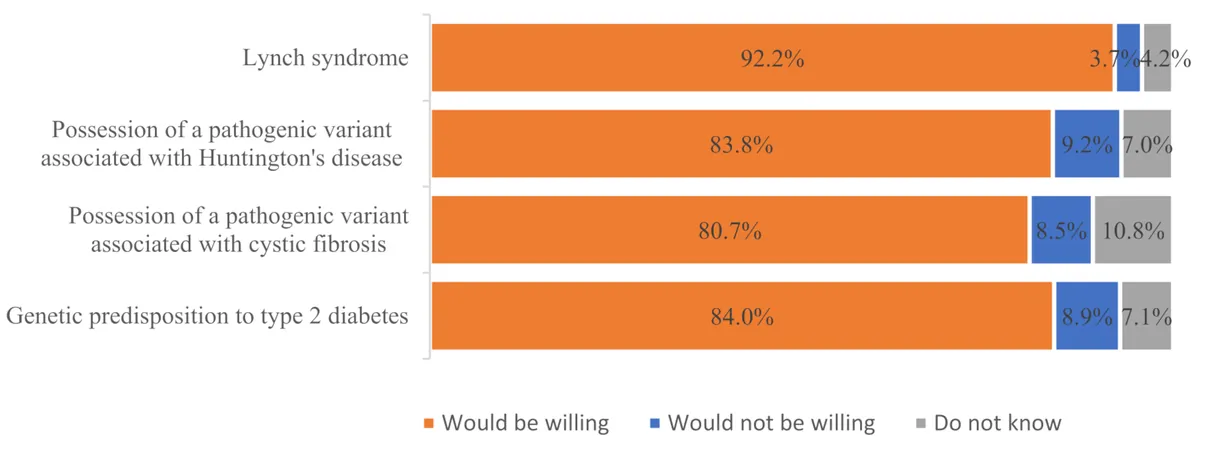
Unlocking Our Genes: What Lithuanians Want to Know From Biobanks!
2025-07-04
Author: Emily
A groundbreaking study in Lithuania is diving deep into the sensitive discussion surrounding the return of individual genetic findings (IGF) from biobanks to participants. With a unique blend of qualitative and quantitative analysis, researchers tapped into expert opinions and public sentiment to unravel what people really want to know about their genetics.
Expert Insights: Who Should Know What?
In 2021, the research team conducted in-depth interviews with 17 experts—both biomedical professionals and law and ethics specialists. These discussions revealed a complex web of opinions on whether individuals should be informed about specific genetic risks discovered during biobank research.
The experts grappled with the question of consent, especially in cases where findings could lead to life-saving interventions. For instance, when it came to Lynch syndrome—a genetic condition tied to an 80% risk of cancer—most experts agreed that participants should be informed immediately, even without their prior consent. "Knowing your risk can save your life," emphasized one expert. However, opinions differed sharply when discussing Huntington’s disease, where the prevailing concern was the emotional toll of such knowledge without any cure.
Public Pulse: Are Lithuanians Eager to Learn?
To complement expert opinions, a survey of 700 Lithuanians revealed a striking desire for information. A whopping 92% expressed a wish to know if they carried genetic markers for Lynch syndrome, while 81% wanted insights regarding cystic fibrosis variants. This hunger for genetic knowledge may reflect a global trend observed in places like the U.S. and Japan, where the public overwhelmingly wants details on their health risks.
The Scenarios That Spark Debate
Throughout the study, four key genetic scenarios emerged: 1) Lynch syndrome; 2) Pathogenic variants tied to Huntington’s disease; 3) Cystic fibrosis variants; and 4) Increased genetic risk for type 2 diabetes. Each scenario sparked lively discussions about the implications of sharing such findings.
Experts highlighted the importance of knowing about Lynch syndrome's risks but were divided on Huntington's disease—fearing it could lead to anxiety, depression, or even suicidal thoughts.
Moving Forward: The Future of Genetic Information In Lithuania
As Lithuania navigates the evolving landscape of genetic information, calls for clearer policies are growing louder. The study concluded that establishing a standardized list of genes and diseases for which participants should be informed could bridge the gap between expert recommendations and public desire for genetic insights.
The critical takeaway? People want to know more about their genetic makeup, but ethical concerns and emotional impacts play a significant role in shaping how this information is handled. The conversation has only just begun, and the outcomes could redefine how biobanks operate on both local and international stages.









 Brasil (PT)
Brasil (PT)
 Canada (EN)
Canada (EN)
 Chile (ES)
Chile (ES)
 Česko (CS)
Česko (CS)
 대한민국 (KO)
대한민국 (KO)
 España (ES)
España (ES)
 France (FR)
France (FR)
 Hong Kong (EN)
Hong Kong (EN)
 Italia (IT)
Italia (IT)
 日本 (JA)
日本 (JA)
 Magyarország (HU)
Magyarország (HU)
 Norge (NO)
Norge (NO)
 Polska (PL)
Polska (PL)
 Schweiz (DE)
Schweiz (DE)
 Singapore (EN)
Singapore (EN)
 Sverige (SV)
Sverige (SV)
 Suomi (FI)
Suomi (FI)
 Türkiye (TR)
Türkiye (TR)
 الإمارات العربية المتحدة (AR)
الإمارات العربية المتحدة (AR)